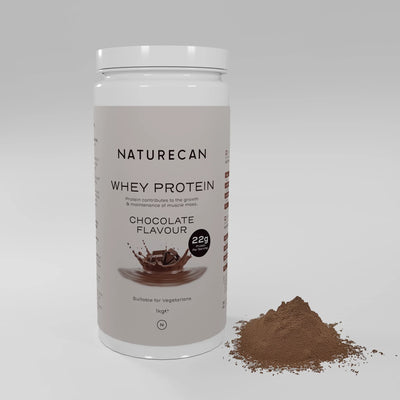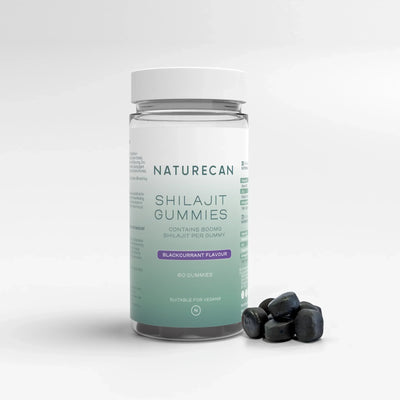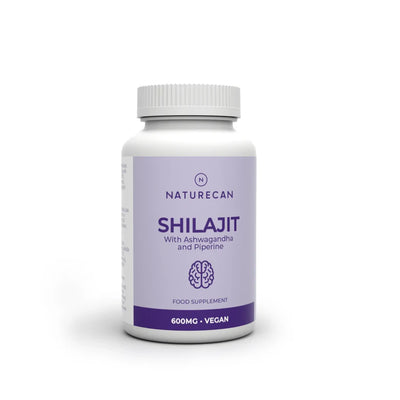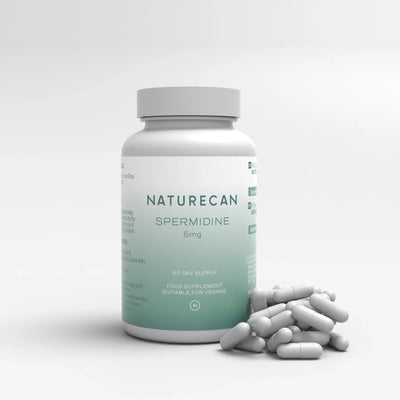Naturecan’s 3 Ashwagandha Food Supplements Explained

Summary:
- Naturecan Fitness Hong Kong offers three high quality ashwagandha food supplements: KSM-66®, Sensoril® and Naturecan Ashwagandha.
- All three deliver the potential benefits of ashwagandha in convenient capsule form, and they differ primarily in terms of composition and dosage.
- KSM-66® and Naturecan Ashwagandha are root-only extracts with 500mg per capsule, while Sensoril® is a root and leaf extract providing 125mg per capsule.
At Naturecan Fitness Hong Kong, you can choose from three premium ashwagandha food supplements: KSM-66®, Sensoril® and Naturecan Ashwagandha. All three are a convenient way to support wellbeing. But how do they differ, and which one is right for you?
In this article, we’ll break down the key differences between these three products to help you find the one that best suits your needs.
What is Ashwagandha?
Also known as “Indian ginseng” or “Indian winter cherry”, ashwagandha (Withania somnifera) is an Ayurvedic herb native to India, the Middle East and parts of Africa.
Derived from the Sanskrit words “ashwa” (horse) and “gandha” (smell), this small shrub grows up to three to five feet in height and has pale green leaves, yellow flowers, and spherical orange-red fruits.
A powerful adaptogen, it is one of the most revered herbs in Ayurveda, with both the leaves and roots used for centuries as a natural tonic or “rasayana”.

What is KSM-66® Ashwagandha?
KSM-66® Ashwagandha is an award-winning supplement infused with natural ashwagandha root extract.
Thanks to a unique aqueous green extraction process, each capsule contains a high concentration of natural active ingredients (at least 5% withanolides), all preserved in their original balance as in the herb.
14 years in the making, KSM-66® Ashwagandha has undergone the most rigorous safety assessments in the industry and been the subject of many clinical trials. It has also won numerous awards, including “Sports Nutrition Ingredient of the Year” in 2018 (1).
What is Sensoril® Ashwagandha?
While KSM-66® is a root-only extract, Sensoril® Ashwagandha is a unique blend of the roots and leaves of the ashwagandha plant, both of which are sources of withanolides and other beneficial compounds.
As a result, this vegan-friendly formulation delivers higher levels of important bioactives (at least 10%), including withanolide glycosides, oligosaccharides and withaferin A.
Like KSM-66®, Sensoril® Ashwagandha is sourced from traditional farms in India, and its safety and efficacy have been supported by many clinical trials.
What is Naturecan Ashwagandha?
Naturecan Ashwagandha is a high quality ashwagandha root extract similar to KSM-66®.
However, while KSM-66® Ashwagandha is suitable only for vegetarians, due to pre-treating the roots in milk in accordance with Ayurvedic tradition, this formulation is made with a unique rice blend, making it suitable for vegans.
With 500mg per serving, Naturecan Ashwagandha delivers a high level of root bioactives key for potentially supporting health in a convenient capsule form.
KSM-66® vs Sensoril® vs Non-branded Ashwagandha
Now we’ve described all three of Naturecan’s ashwagandha supplements, let’s take a look at their key differences.
KSM-66®, Sensoril® and Naturecan Ashwagandha all deliver the potential benefits of this powerful adaptogen, but they differ in terms of their composition, concentration and dosage.
KSM-66® and Naturecan Ashwagandha are both root-only extracts, while Sensoril® is a blend of ashwagandha root and leaf extracts. As a result, Sensoril® contains higher levels of important bioactives (10% compared to 5%) and therefore comes in a lower dosage (125mg compared to 500mg).
Furthermore, Sensoril® and Naturecan Ashwagandha are suitable for vegans, while KSM-66® contains milk and therefore is only suitable for vegetarians.
Takeaway
Naturecan’s three ashwagandha supplements all offer a safe and easy way to access the potential benefits of ashwagandha, but due to their unique compositions and concentrations, you may find small potential differences in their effects on the body.
If you’re on a strictly vegan diet, we recommend trying Sensoril® or Naturecan Ashwagandha, but if you’re happy to use products containing dairy, why not try all three and see which one you benefit from most.
For a science-based comparison of ashwagandha and rhodiola, check out our blog article: Ashwagandha vs Rhodiola: Which is best for you?
Disclaimer: Please note that the views above are suggested from published studies and are not approved or authorised health claims. Please always consult your health care professional before taking any of these food supplements, especially if you are taking any medication, as they may not be suitable for you. Food supplements should not be used as a substitute for a varied and balanced diet. Written by Alex Coughlan and reviewed by our qualified expert, Imogen Blackshaw, Senior Regulatory Compliance Officer at Naturecan, BSc Public Health Nutrition and Registered Associate Nutritionist (ANutr)

Products Mentioned
References:
1. KSM-66® was awarded “Sports Nutrition Ingredient of the Year” by NutraIngredients-Asia in 2018, “SFE-Herbal Industry Leader Award” 2016, Frost & Sullivan 2014 “Product Innovation in Botanicals” award, “Best Botanical Ingredient” award for 2013 at Natural Products Expo West and “Innovative Ingredient of the Year” award for 2012 at Panacea.
- https://journals.lww.com/md-journal/fulltext/2019/09130/an_investigation_into_the_stress_relieving_and.67.aspx
- https://ksm66ashwagandhaa.com/clinical-studies/
- https://natreoninc.com/wp-content/uploads/2021/10/sensoril-ashwagandha-infographic-2021.pdf
- https://clinicaltrials.gov/ct2/show/NCT01311180








